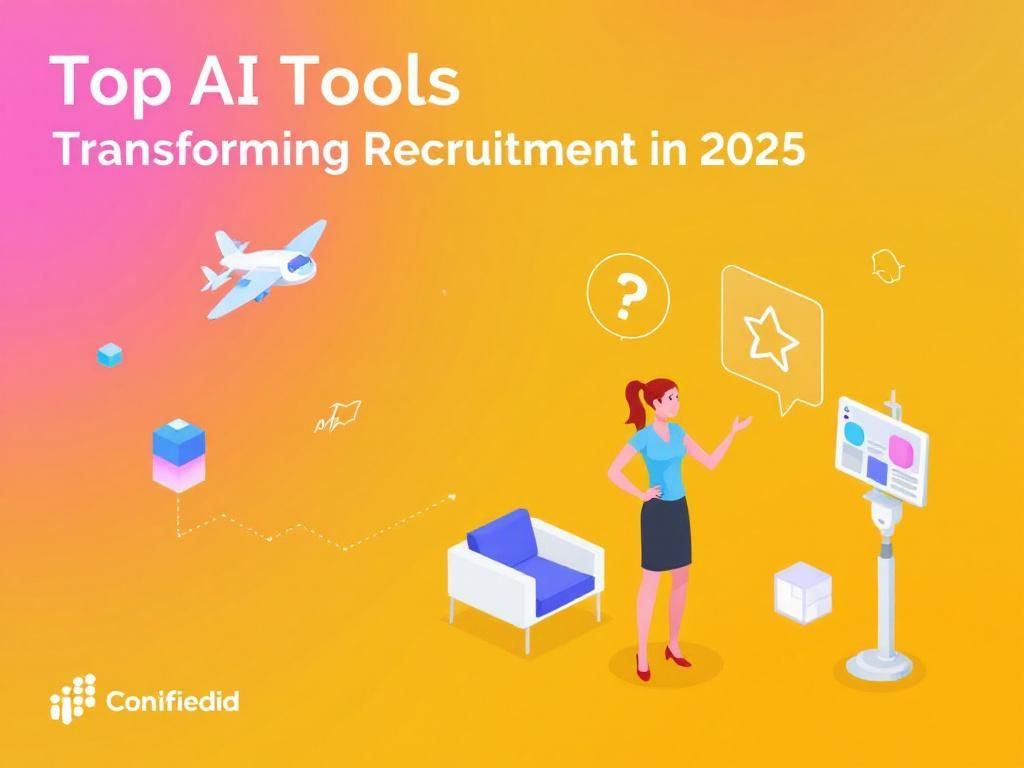In the fast-paced world of recruitment, the advent of artificial intelligence is revolutionary. By 2025, we are set to witness an exponential growth in AI applications that streamline the hiring process, enhance candidate experience, and ultimately lead to better hiring decisions. This article explores the top AI tools reshaping recruitment, their benefits, and how they are transforming the landscape of talent acquisition.
As we look ahead to 2025, the recruitment landscape is set to be dramatically reshaped by emerging AI tools. These innovative solutions streamline the hiring process, enhance candidate matching, and improve overall efficiency, enabling organizations to make more informed decisions. To delve deeper into the landscape of current tools, discover innovative AI solutions.
The Role of AI in Recruitment
Artificial Intelligence in recruitment goes beyond mere automation. It analyzes vast amounts of data, predicts candidate fit, and enhances decision-making processes. Here are some key areas where AI is making a significant impact:
- Data-Driven Insights: AI tools sift through resumes and profiles, identifying the best candidates based on data rather than subjective biases.
- Improved Candidate Engagement: Chatbots and virtual assistants can interact with candidates, providing timely updates and feedback.
- Predictive Analytics: AI can forecast future hiring needs based on trends and historical data, allowing organizations to be proactive rather than reactive.
Leading AI Tools in Recruitment
As the recruitment landscape evolves, several AI tools are leading the charge. Below is a comprehensive overview of some of the most influential AI recruitment tools expected to dominate in 2025.
1. HireVue
HireVue utilizes AI to conduct video interviews and analyze responses through natural language processing and facial recognition technology. This allows hiring managers to:
- Evaluate candidates’ soft skills.
- Identify the best-fit candidates quickly.
- Reduce time spent on initial interview screenings.
2. Pymetrics
Pymetrics employs neuroscience-based games to assess candidates’ cognitive and emotional traits, providing insights into their potential fit for a role. Key features include:
- Gamified assessments that eliminate bias.
- Data-driven matches to company culture.
- Continuous learning algorithms that adapt over time.
3. Eightfold.ai
This AI-powered talent intelligence platform focuses on matching candidates with suitable roles based on their skills and experiences. Benefits include:
| Feature | Description |
|---|---|
| Skill Mapping | Maps candidates’ skills against job requirements. |
| Diversity Hiring | Helps organizations maintain diversity in hiring. |
| Talent Rediscovery | Identifies past applicants who match current job openings. |
4. X0PA AI
X0PA AI provides an end-to-end recruitment solution, from sourcing to hiring. Its capabilities include:
- Smart candidate sourcing through multiple channels.
- Automated interview scheduling.
- A detailed analytics dashboard for recruitment metrics.
Benefits of AI Tools in Recruitment
Integrating AI into the recruitment process offers several advantages that benefit both recruiters and candidates:
Enhanced Efficiency
AI tools significantly reduce the time spent on repetitive tasks, allowing recruiters to focus on strategic decision-making. For instance:
- Resume Screening: AI can screen thousands of resumes in a fraction of the time it would take a human recruiter.
- Interview Scheduling: Automated scheduling tools eliminate back-and-forth emails.
Improved Candidate Experience
Candidates appreciate timely communication and a seamless application process. AI tools ensure:
- Quick responses to applications.
- Real-time updates on application status.
- Personalized feedback after interviews.
Reduction of Bias
AI tools can minimize unconscious bias by focusing on data rather than subjective judgment. Key approaches include:
- Blind recruitment processes where identifying information is removed.
- Standardized assessments that evaluate all candidates equally.
Challenges and Considerations
While AI tools offer numerous benefits, they also pose challenges that need to be addressed:
Data Privacy Concerns
Organizations must ensure compliance with data protection regulations like GDPR when using AI tools. Key points include:
- Obtaining consent from candidates for data processing.
- Implementing strict data security measures.
Dependence on Quality Data
The effectiveness of AI tools relies heavily on the quality of data fed into them. Therefore, organizations must:
- Regularly update their databases to ensure accuracy.
- Use diverse datasets to train AI algorithms, promoting fairness.
The Future of AI in Recruitment
As we advance toward 2025, the expectation is that AI will continue to evolve, further revolutionizing recruitment practices. Innovations may include:
- Integration with virtual reality (VR) for immersive candidate experiences.
- Advanced natural language processing capabilities that enhance chatbots.
In conclusion, the future of recruitment is bright with AI at the helm. As organizations adopt these tools, they will not only improve efficiency but also create a more engaging and equitable hiring process. The result will be a transformative shift in how talent acquisition is approached, ensuring that the best candidates are identified and retained.
FAQ
What are the top AI tools transforming recruitment in 2025?
In 2025, top AI tools such as AI-driven applicant tracking systems, chatbots for candidate engagement, and predictive analytics platforms are revolutionizing the recruitment process.
How does AI improve the recruitment process?
AI improves the recruitment process by automating resume screening, enhancing candidate matching, and providing data-driven insights for better hiring decisions.
What role do chatbots play in recruitment?
Chatbots in recruitment assist by providing instant responses to candidate inquiries, scheduling interviews, and maintaining engagement throughout the hiring process.
Can AI help reduce bias in recruitment?
Yes, AI can help reduce bias in recruitment by using algorithms that focus on skills and qualifications rather than demographic factors, promoting a more equitable hiring process.
What is predictive analytics in recruitment?
Predictive analytics in recruitment involves using historical data to forecast hiring outcomes, helping organizations identify the best candidates and improve retention rates.
How will AI tools evolve in recruitment by 2025?
By 2025, AI tools in recruitment are expected to evolve with more advanced machine learning algorithms, greater personalization for candidates, and enhanced integration with other HR technologies.




